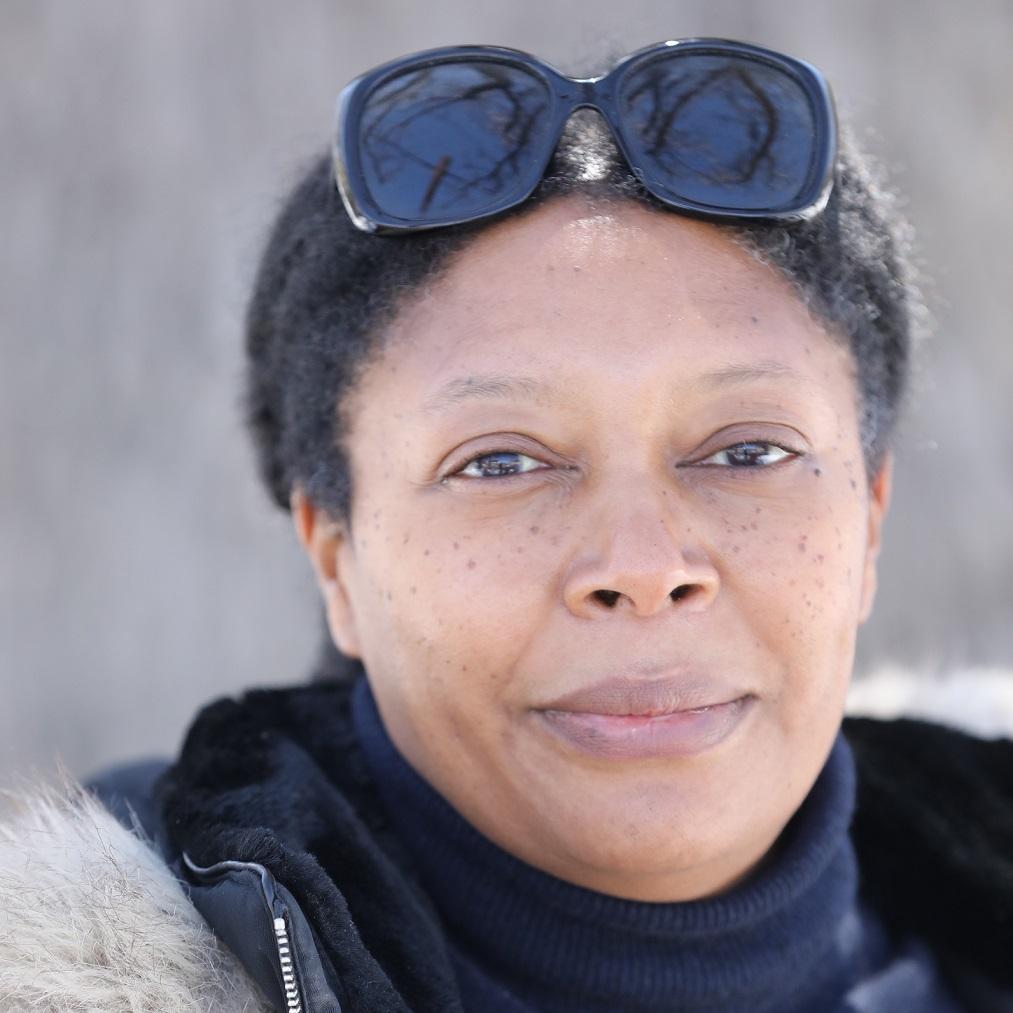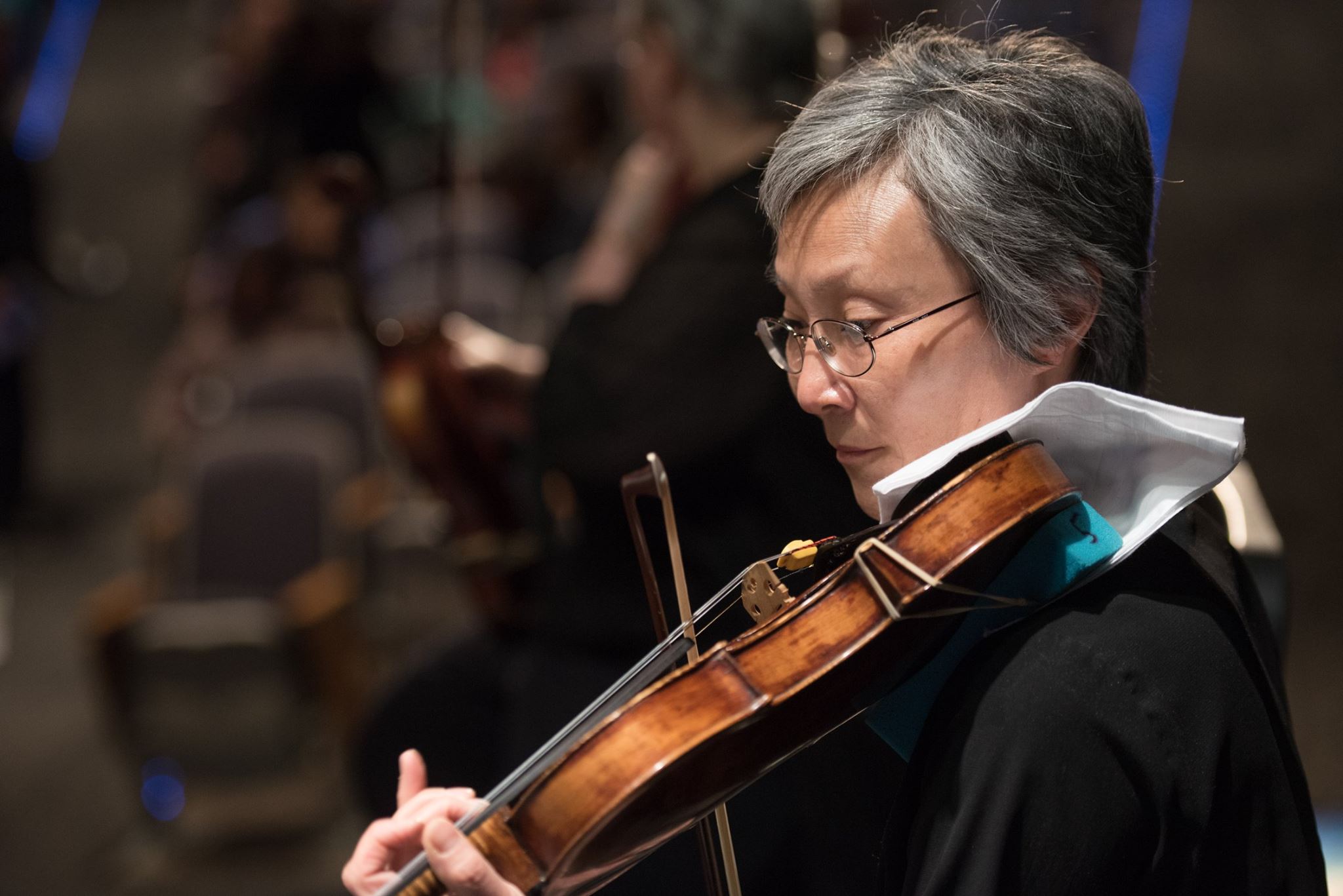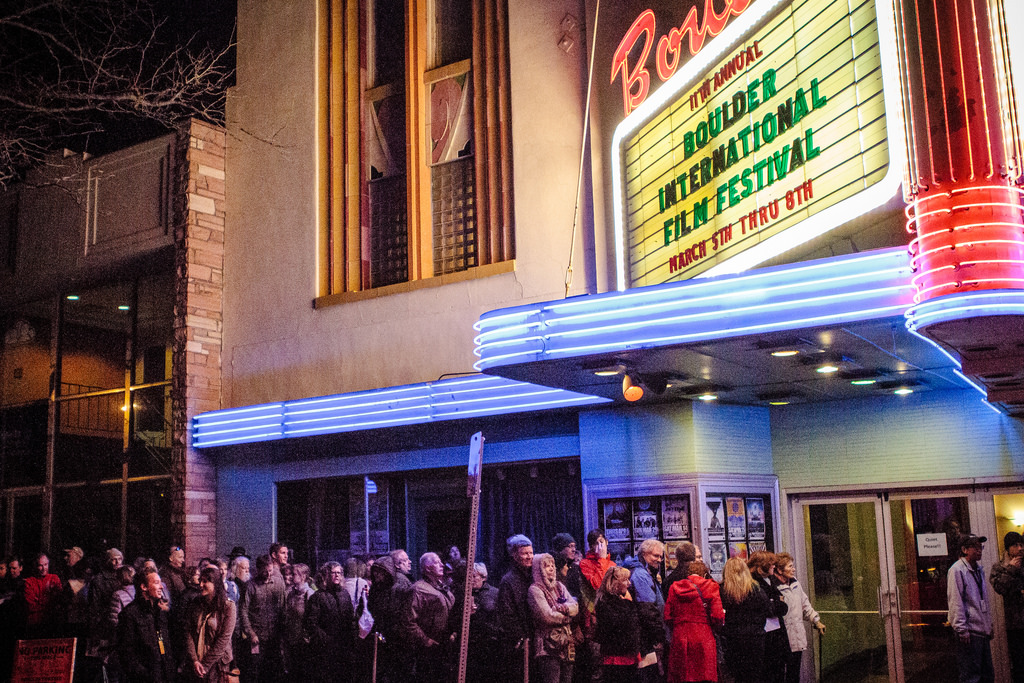Boulderauthor Jenny Shank's new novel is about a clerical error with devastating consequences. "The Ringer" is loosely based on a true story, whenDenver police raided the wrong house and killed an innocent man. Hernovel jumps back and forth between perspectives: first the white cop whofired the fatal shot, then to the Hispanic family that’s lost ahusband and father. Shank talks with Ryan Warner. [Image: Courtesy of Jenny Shank]
Read the first two chapters below, reprinted with permission of The Permanent Press, Sag Harbor, New York.
Chapter 1
Ed O'Fallon—March 11
On the first day of tee-ball practice, Ed O'Fallon learned that his primary mission in coaching his daughter's team would be to convince the fielders to pay attention to the action at the plate. Instead, the girls preferred to concentrate on refilling aeration holes with the grass-topped earth plugs that littered the outfield like turds. While the girls arrived, Ed checked his watch. He had two hours to spend with them before he left for work. The SWAT team commander had summoned him to assist on a high-risk warrant that afternoon.
The dozen-odd girls assembled reasonably on time the Saturday morning of their first practice. The team's name—The Purple Unicorns—was a relic of the tee-ball league's first season, when the coaches allowed players to suggest and vote on names for each club. The schedule the league office had issued Ed listed such competitors as the Denver Dream Stars, The Butterfly Power, The Christinas—which Ed kind of liked—and the Colorado Princess Brigade, a coach-influenced name, Ed felt certain.
Ed stood on home plate, holding his clipboard, and surveyed his team: Cleatless, capless, untutored six-year-olds, his girl Polly among them, their clothes the colors of an array of ice cream. Polly, at least, wore sweatpants, which she changed into after Ed insisted that she couldn't slide in shorts or jeans. Ed cleared his throat. "Hello, Unicorns," he heard himself say. He'd debated about what to call them. He'd always addressed his sons' teams as "Men," but "Women" didn't seem right, not for six-year-olds, "Ladies" sounded like a vaguely creepy term for a 37-year-old man to use with little girls, and "Girls" wouldn't have the appropriate, spirit-bolstering effect he was looking for. So he settled on calling them Unicorns. "We need to work hard today, Unicorns, because our first game is in two weeks." He looked down at his clipboard, and then added, "It's against the Southeast Denver Baby Kittens."
He should have been coaching his sons instead, as he had for years, in a league where the teams were named properly, after pizza joints, hardware stores, and rabid animals. "Okay team," Ed said, "Start with some laps."
The Unicorns looked up at him and blinked. "Laps," he repeated. "You know, where you run around the field a couple of times?"
As he waited for them to move, he could see a million questions burbling to their lips, which they opened slightly as if to speak, to ask him about the location of the bathroom, the availability of water and snacks, and what should be done with the unbroken-in gloves that they clutched to their chests like loaves of bread in famine times. But they wouldn't ask him their questions, because as Ed had learned from his wife Claire, many kids found him scary, ducking behind their parents or fleeing when he approached, especially when he was out of uniform and there was no way to tell whether he was a good guy or a bad one.
"Go on," Ed said to the still-motionless girls. "Follow Polly." He pointed his daughter toward the outfield and guided her off with a hand on her back. Some girls dropped their gloves, some girls clung to them, but they all began to trot away from Ed. He was proud to see that Polly ran the way he'd taught her, raising her knees high, her heels almost touching the seat of her pants.
At his sons' practice, the laps would be completed without a coach's request, and they would move smoothly through the warm up, two players gradually increasing the distance between them as they threw and caught, the team paired off and lined up in neat parallel lines.
Ed shielded his eyes from the sun and watched the girls jog. Polly chugged along in front, her brown curls bouncing, but others deviated, skipping, collecting fistfuls of dandelions that grew close to the outfield fence. Fine. That was fine. In this league, the standard kid sports motto about how it didn't matter if you won or lost was actually true. Which was why Claire insisted Ed give baseball coaching a rest this year and take on Polly's tee-ball team instead. "You just get too worked up when Jesse and E.J. play," she said. By that she meant he yelled too much and that parents had complained.
At work, raising his voice at a citizen would barely chart on a 1-to-10 use-of-force scale. Yelling was the most benign control technique Ed possessed, serving as the entryway to the arsenal of other options, like the warm-up scales of an opera singer. When Ed coached, yelling was the way he expressed his hopes for the team, being too superstitious to do it in any other way. He voiced ideas contrary to his wishes, trying to dejinx the team: this pitcher's stuff's too fast—you can't touch him, the catcher's got a cannon—he'll throw you out if you try to steal. He yelled when a boy swung at a bad pitch or took a good one. He yelled when hitters didn't run out stillborn hits. He yelled when fielders failed to back each other up on grounders or call fly balls. He yelled at loafers, lollygaggers, showboaters, and space cadets.
"You can't treat other people's children like potential non-compliants to be controlled," Claire often told him. "Only your own. And there's a time and a place. What can you do to help a kid, really, when he stands in the batter's box with an 0-2 count against him? You can say what you want before he goes to bat, but each person has to face the two strikes against him alone."
Claire had tried to save Ed's baseball coaching career before it was too late, steering him as she always did, like a rider guiding her horse, applying gentle, firm pressure toward the desired turn. Last season, she started bringing containers of cut apples to games and thrust them at him whenever a player committed an egregious error. The moment a grounder shot through legs, a runner took off on a fly without tagging up, or a pop-up tumbled out of a glove while the fielder's ungloved hand remained idle, Claire would produce the apples. Ed did as expected, took an apple slice, bit into it and chewed, one after another, keeping his mouth full and silent until the urge to holler passed. Sometimes this method failed, and after he sprayed invective and partially chewed apple bits, Claire would banish him to another field while an assistant coach took over, so Ed could pace out his anger away from the team. After games Claire would remind him that the point of the Police Athletic League was to introduce neighborhood children to what decent and friendly guys police officers could be.
Ed couldn't account for how his steadiness at work gave way to madness at games, where he became the guy the mothers whispered about in between sips of diet cola as they roosted in the stands. At work, Ed's temper held. One time he and his partner Mitch entered a house on a call for a domestic and found the husband and wife screaming at each other by the refrigerator, brandishing kitchen implements, she with a cast iron skillet, and he with an unplugged plastic toaster. Pitched on the edge of battle, they hardly registered Ed and Mitch's entrance. They told the couple to calm down, ordered them to drop the pan and toaster and back away from each other, but their eyes locked, and neither would move until the other did. Then Ed noticed a bottle of cleaner glinting in the windowsill. He grabbed it and began to scrub the grimy kitchen, while he watched the couple, then wiped down the counter and the stove with a stray dishrag, until they gleamed. The couple stopped yelling, put down their arms, and looked at him in wonder.
Because of stunts like this, the SWAT commander recently invited Ed to join the team. Ed declined to become a full-time member, preferring the unpredictable, alternately boring and energizing routine of the patrol officer. He enjoyed roaming the city, scouring the streets, answering calls, keeping his eyes open for young women on solitary jogs in parks full of miscreants, children at bus stops who were small enough to snatch, and the disheveled shamblers of Colfax Avenue, who could do anything to anyone at any moment. Instead of giving up patrolling entirely, Ed agreed to assist SWAT when they needed him, and he'd be part of the eight-man team that would enforce a drug warrant that afternoon.
The Unicorns returned from running after only one go around the field. Ed felt no urge to yell at them. Claire had been right about that.
"Laps," Ed said. "They're called laps. It's plural."
The kids just stared at him. He was Don Rickles, trying to work a room full of Japanese tourists.
"All right, Unicorns, now we get to decide where everyone will play. Why don't you all run out to the field and stand at the position you'd like to play."
No one moved. Then one girl, a blonde who was taller than the rest and wore glittery silver fingernail polish, sauntered out to the pitching mound. Well, the pitching flat, really, Ed thought. What did you call it when there wasn't a mound there? Everyone followed her, and herded in the center of the field. Polly started to follow them and Ed reached out and stopped her with his hand on her shoulder.
"Hey, you don't want to go there, P. The pitcher doesn't even pitch in tee-ball." The manual Ed had read the night before was clear on this point. The pitcher merely stood on the rubber and made a gesture as if she were pitching, underhand or overhand, it didn't matter, which was the signal for the batter to swing the bat at the ball mounted on the tee in front of her. The part called for a little light fielding, but it was mainly mime. Ed kneeled next to Polly. "Why don't you go to short? You'd be good there."
"Okay," Polly said, and turned to go.
"Hey," he said. "What's all the rush on pitching today anyway?"
"It's Anna," Polly whispered, indicating the blonde by jerking her thumb in that direction. "She's cool."
Ed walked over to break up the mob at the pitching flat. "Okay, we can't all be pitchers, Unicorns. There are lots of other fun places to play. Now, who are my lefties?"
They stared at him, silent, as though they were worried about what would be required of lefties, maybe another lap or something worse.
"Don't be shy," Ed said. "Raise your hand if you're left-handed."
Two girls slowly lifted their hands, looking at each other.
"Great," Ed said. "Lefty, you get over to first base," he said, pointing to the taller girl of the two.
"My name's Bethany," she said.
"Well, now it's Lefty."
Ed detected a smile or two at last. He could do this. He began to divvy them up. "Okay, Shorty, you go to second. Speedy—yes, you, I saw you cooking during the run—you head out to centerfield. The one in the middle, that's right. Muscles," he said, resting his hands on the shoulders of a stockier girl, and getting a smile from her and a giggle from the team. "Muscles, you'll be our catcher. Catchers are special because they have their own outfit, just for them. Blondie, you pitch, that's good, you showed some initiative the way you hustled out here. Okay, Curly, Larry, and Moe," and now all the girls were laughing. See? He wasn't so scary. "Larry, you go to leftfield, and Moe, you go to right." The two girls took off toward the positions opposite the ones he had assigned them. "Well, whatever. Curly, you grab third, and the rest of you get to bat first." As long as you didn't think of it as baseball, it was fun, really. As long as you didn't expect it to resemble real baseball in any way.
"How did it go?" Claire asked when Ed and Polly arrived home from practice. Claire was standing on the front porch, waiting without her coat on though the March day was crisp. She'd hurried outside as Ed's car approached, as if she had expected him to report a catastrophe. She looked lovely to Ed as she stood there, the wind blowing back her auburn hair, her fair, freckled cheeks pink from the cold.
"Great," Ed said, "really great."
"Polly, I made macaroni for your lunch," Claire said.
Polly slipped inside, letting the screen door slam behind her.
"And?" Claire said, moving in front of Ed until he looked her in the eye.
Ed never looked in a suspect's eyes, because they would only mislead you. The hands were what you watched. Claire had to remind him to make eye contact with his family whenever he forgot. "And what?"
"You know."
"I didn't yell, Claire, not once. I couldn't yell at those little girls."
"Good," Claire said. "That's a start." She squeezed his hand. "Do you have time for lunch?"
"I'll have to grab something on my way to work. I've got to run. I've got that raid."
"All right. Be careful, would you? Be safe."
"Hey, always."
She turned her cheek to him and he kissed it.
At just past one in the afternoon, Ed and the other policemen approached a small brick house in west Denver, past Mile High Stadium, where the playing fields of the neighborhood schools were nothing but dust-covered ground fenced in chainlink. They crossed the parched, pigweed-choked lawn. They mounted the cracked cement steps, rushing past a green plastic watering can and a battered lawn chair on the porch, a pile of dirty snow melting in the seat. The remnants of long dead plants in terracotta pots lined the edge of the porch. As discussed in the briefing, the men didn't ring the bell, they didn't knock on the door. They had obtained an immediate entry search warrant for this raid, and they didn't even have to jimmy the lock. The door swung open when the breacher turned the handle and the officers passed through.
Inside the house, the sergeant yelled, "Police! It's the police!" No answer came. The eight men split into four predetermined teams and broke up to search. They prowled the ground floor first. Ed moved cautiously, scanning for signs of an occupant hiding or crouching in wait, but the first room he checked harbored only a ratty olive-green couch cloaked in a brown afghan somebody had crocheted long ago. The kitchen, piled with fast food boxes and dishes with geologic encrustations, revealed little. No sane, sober woman would abide living there, and that confirmed what Ed knew about the place. According to the briefing, it served as a flophouse for men who came from Mexico for part of the year to finance their families back home. They used a no-knock warrant for a better chance of securing case-building evidence against the dealers—so much drug evidence was flushable—but as the officers searched the ground floor for anything incriminating, they found nothing.
Ed followed Sergeant Springer up the stairs with his gun ready, and two other officers trailed. Springer was six-five and skinny, and he tried to fold himself smaller as he mounted the stairs. Ed scanned the dim hallway at the top of the steps, noted the two closed doors on either side. On the wall opposite the left-side door hung a dingy oval mirror, but with the house shuttered into midday dark, Ed could see nothing reflected in it. "Police!" Sergeant Springer shouted at the door to the left. No one answered. The breacher forced open the door with a handheld ram and stood clear as it swung forward, hit the wall, bounced halfway back. The breacher fell back, Ed took a position to the right of the doorframe behind the wall, and Springer assumed the left side.
That was the last time Ed noticed Springer. Because then Ed looked around the doorframe and saw a man, bleary from sleep, standing near the bed, keeping his left hand hidden behind his leg. He wore jeans and a crumpled white t-shirt with a hole in it just below his throat. Ed felt that he stared at that hole for minutes before he acted, pulling his head behind the cover of the wall.
Ed yelled, "Police! Policía! Let me see your hands!" He heard nothing but his lone voice as he shouted, and it sounded frail to him, barely audible, hoarse and off-pitch. "Policía! Policía!" he repeated. Ed ventured a glance at the man to check if he had complied.
The man seemed disoriented, as though just awakened, rubbing his eyes with his free hand. He drew his left hand forward, holding what looked to Ed to be a gun. "Drop the gun!" Ed yelled. The man lowered his hand, then suddenly raised it again. Ed saw the muscles of the man's forearm twitch, and thought that's it, the man had already pulled the trigger and Ed could tell from the angle the bullet would momentarily rip through him, somewhere between his throat and his heart. Ed heard a pop from the room, a noise too insignificant for a gun, and he heard the mirror shatter in the hallway. Did he fire? Ed pulled the trigger of his weapon.
Ed shot him once through the doorway and the man fell to his knees, and then tried to stand back up. Ed saw the muzzle flash and he fired again, but the sound was distant, muffled. He wasn't hearing right, he wasn't seeing right, just riding the wave of his training, his body having memorized what it was supposed to do. The man dropped to the floor as his blood pumped out onto the rust-colored carpet. The words the man cried out as he fell back sounded like names, but Ed could not make them out. The man writhed onto his side, spreading the blood with every motion. The front of the man's pants became wet as his bladder emptied. Was he dead already?
It was then that Ed realized that five other officers stood around him. The area that seemed so empty, spotlit only around Ed and the man, suddenly teemed with people. Ed's ears flooded with the sounds of their activity as if popped by a change in altitude. Ed remained in the position from which he'd fired the gun, his feet fused to the ground. His shaking hands could not holster his weapon. He stared at the man on the ground, unable to comprehend that he, Ed, had done this. Ed told himself that he had killed this person, his mind running over and over this idea, like the finger of a blind man trying to make sense of an inscrutable passage of Braille. Ed finally turned around and looked at the mirror in the hallway, which hung intact on the wall. He closed his eyes to clear them, still able to hear the sound of the glass shattering, louder in his memory than the blasts of the gun. From his spot, he surveyed the room where the dead man lay, and saw the uniform for the man's job at the soda bottling plant hanging in the closet alongside little else. Embroidered on the pocket, the dead man's name: Salvador. Not the name on the warrant, Ed thought.
Scanning the room, Ed noticed a makeshift trophy case near the spot where the man had fallen, something he hadn't perceived before. On a plank of pine stretched across two cinderblocks sat an assortment of baseball trophies. An identical golden boy, his bat at the ready, topped each one, and every batter stood on a cylinder of varying size and color, glinting blues, greens, and reds, on a plastic base bearing a small engraved plaque. Ed finally reached for one of the trophies so he could inspect the inscription, but Sergeant Springer closed a hand around Ed's arm and gently pulled him away. Ed's fingers brushed against a trophy, toppling it. It landed next to the man's foot, and that was the last Ed saw of the claustrophobic room in the west side of the city. The sergeant led Ed away down the stairs.
Chapter 2
Patricia Maestas de Santillano—Monday, March 13
Patricia Maestas sat home too early on a work day, sunk in Salvador's chair, a seat no one had occupied since he'd left for Mexico again six months before. The chair was hard around the edges and concave in the middle, covered in scratchy brown material that resembled burlap, so it had always been Salvador's private throne in the corner of the room. She rubbed her hands over the armrests and settled into the dent left by his body. It had been an hour since Tío Tiger called her at work to say he'd seen the article about Salvador being killed by the cops in a drug raid. Salvador had been dead for over a day without her knowing and she couldn't understand how that was possible. The father of her children, the man of her life: shouldn't she have felt something when it happened? Bewildered, she'd made her way home.
When she first arrived she thought of taking the kids out of school but then thought, no, leave them a few more hours of not knowing. The afternoon sun began to fail, sending in a weak shaft that stopped just past the windows, but she could read the clock across the room as its red numbers flashed the day away: 3:45. The kids should have been home by now.
She walked out on the porch, shielding her eyes to scan the street. The litany of terrible possibilities unspooled in her head. Then she saw Mia approaching from the end of the block, alone, heart-shaped face angled toward the pavement, dragging her backpack by one strap.
When Mia ran up the porch steps Patricia sank to her knees and pulled her daughter close, burying her nose in Mia's long braids that smelled of strawberry shampoo. Mia's milky skin and delicate build came from Patricia, but her full lips came from Salvador, and Patricia kissed her on the mouth like she used to when she was a baby.
Mia wiped her lips with the back of her hand.
"Where's Ray?" Patricia asked. Mia was eight years old and responsible, but they lived near Federal, a busy street.
"He said he'd be home in a while. I'm not supposed to say."
"Supposed to say what?"
"That he let me walk home alone." She looked down at her shoes, as if consulting with them about how much to spill. "He was walking to Federal with those boys."
"What boys? Miguel?"
It had started after Patricia and Salvador separated. In sixth grade Ray stopped hanging out with the neighbor kids and picked up a new group that included Miguel, whose mother was barely thirteen years older than he was, her boyfriend tattooed with the insignia of the North Side Mafia. Patricia had agreed to drive Ray over to Miguel's once. Two blunt-bodied, short-necked dogs scrambled over the dirt lawn toward their car like a couple of slavering torpedoes. Three men with shaved heads slouched on a sun-faded floral couch on the porch. Patricia kept on driving, Ray saying, "What the fuck, Mom?" as the house with its gray peeling paint and sagging roof faded back.
Patricia screeched to a stop in the middle of the block, squeezing the clutch until her knuckles popped so she wouldn't smack him. The skill separating a good mother from a bad one was the same quality Ray often mentioned good pitchers possessed: superior muscle control. "We don't talk that way," she said. "You get that from Miguel?"
Ray fixed her with an ugly stare. "Maybe I got it from Dad."
"He doesn't talk like that."
"You act like he does," Ray huffed. "Don't say ain't," he added in a high-pitched tone meant to rile her in imitation of her grammar lessons.
She sped off. Miguel's people were the sort who shot their guns into the air at midnight on New Year's Eve, too drunk to care where their bullets fell, but Patricia cared, because sometimes the bullets landed in bystanders wheeled in to her at the hospital.
"You're too good for Miguel's neighborhood, too good for Dad's," Ray continued, testing his power.
She shot him a glance: watch it. She knew little about the house where Salvador had been renting a room, except that people moved in and out all the time. She couldn't keep track of the different men who answered the phone there, Bueno? The neighborhood was bad, too, one that often made the ten o'clock news. Since they had separated, Salvador had been meeting the kids at places where Patricia dropped them off—Sloan's Lake, the Woodbury library, the museum on a free day so Mia could hunt for the elves hidden in the back of the animal dioramas.
Ray pulled up the hood of his sweatshirt and faced away.
"Fine," Patricia said. "Hate me if you want, but ask yourself: who takes care of you every time Dad takes off?"
After the day she'd driven past Miguel's, she'd kept Ray apart from him when she could, but she couldn't prevent the association at school, and a few weeks earlier they'd been suspended for flashing gang signs to each other on the playground. Salvador had told her not to worry about it so much, that Ray was a decent kid and he'd figure things out. Now Salvador was gone for good.
"You're not going to tell Ray I said he went with Miguel, right?" Mia asked, tugging on Patricia's sleeve. "Why are you still wearing your coat?"
Patricia looked down. She had forgotten to remove her coat when she arrived home two hours earlier, and when she let it drop now, she shivered.
"And you're still in your nurse scrubs," Mia said. "What about germs?"
"We've got to find your brother."
Patricia led Mia into the car and drove toward Federal Boulevard. She scanned the parking lots of businesses, churches, schools, and homes all jumbled together along one stretch of road. She was hoping he'd be outside, where she could see him. She'd revoke his allowance for a month. Two. The only way to keep them home was to keep them broke. Federal offered too many places to pass five bucks worth of time.
"Why doesn't he hang out with Nino anymore?" Patricia asked Mia, who shrugged. Plump little Nino, who lived next door with his grandma, used to be Ray's sidekick. They had been friends since first grade, when they started playing baseball together on the same parish team, Ray pitching and Nino catching, because in some leagues, as in bad baseball movies, that's where the chunkiest player is put.








